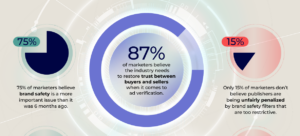A lack of accountability within the private sector will lead to governments assuming responsibility for AI regulation over the next five years, according to new research from software provider Pegasystems Inc.
The global study, conducted by research firm iResearch, surveyed 1350 C-level executives across seven different industries in 12 countries to examine how growing technology trends such as artificial intelligence (AI) governance, hyperautomation, extended reality (XR), extended edge and distributed cloud will evolve over the next five years.
The research identified a growing need for business leaders to take stronger accountability for the governance, integration, innovation, and adoption of emerging technologies so they can better enact change within their organisations.
While three quarters (65%) of respondents feel the current level of external AI governance isn’t sufficient to manage its explosive growth, just over a quarter (27%) report they have no designated AI governance leader and only 25% are managing a formal policy at the C-suite level. Though the vast majority (78%) of respondents prefer full or equally shared responsibility for regulation, 75% expect the government will be largely or fully responsible for governance in five years’ time.
Don Schuerman, CTO & vice president, product strategy & market, Pegasystems, said: “If you want a real competitive advantage, you have to take an active, deliberate approach to adopting new digital technology – now. Technology keeps advancing and is not going to slow down for organizations to catch up. Business leaders who are willing to embrace emerging technologies including AI, XR, extended edge, hyperautomation and distributed cloud will be the most likely to come out on top over the next five years.”
Though XR is one of the biggest emerging technology trends for consumers, just 35% of business leaders said XR is currently changing the way their industry is providing customer experience. However, the picture could look very different in five years, when 30% of respondents say XR will become essential to customer engagement and over half (52%) believe XR will eventually become a competitive differentiator.
73% of respondents said remote and mobile work trends have made cloud deployments a high priority, while more than half (51%) said mobile and remote functionality will continue to be one of several drivers for extended edge technology adoption.












